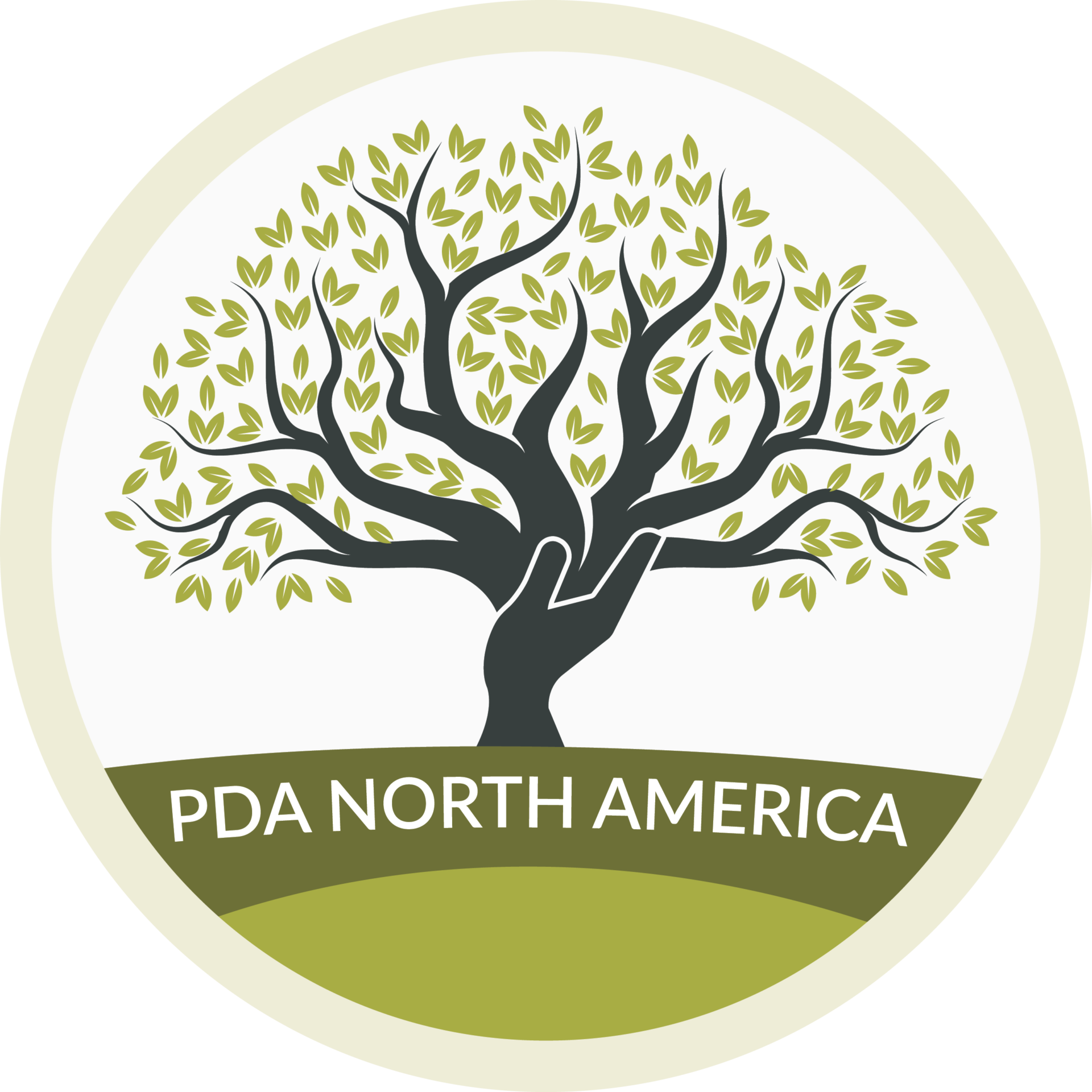What is Pathological Demand Avoidance (PDA)
PDA is a newly emerging profile that falls under the autism spectrum. It’s recognized as an extreme avoidance of everyday activities due to heightened anxiety. Unlike oppositional behavior where a person will say “I won’t”, the person with PDA will say “I can’t”. In the United States and Canada, most families and professionals have not even heard of PDA, Pathological Demand Avoidance. That leaves parents whose child fits the profile of PDA without understanding, support or resources. That also leaves teachers and therapists unable to help these families. Parents who have discovered PDA feel isolated and unheard. We are trying to change that.
The PDA profile is considered to be under the autism spectrum. It is not in the DSM so it is not accepted by many professionals. We are not going to wait until PDA is included to get started. We know it is “a real thing.” We know that people need help now.
In other countries such as the United Kingdom and Australia, PDA is recognized. Individuals are getting formal diagnoses. There are trained professionals, conferences, books, educational services and support groups. There are even schools designed for this population. There is awareness and understanding.
Although this journey is in its infancy, we are determined to make things happen. PDA North America is a beginning step to get families the resources they need and create a cadre of professionals who will partner with them. Welcome to the PDA movement. It is going to be an exciting place to be.
What is PDA?
PDA is becoming widely recognized in other countries to be a profile on the autism spectrum thanks to PDA emissaries like Harry Thompson, Kristy Forbes and Laura Kerbey. The US and Canada are still at an early stage in our understanding and PDA research is in its infancy.
While autism is a widely recognized term our understanding of the full breadth and complexity of the autism spectrum is still evolving. The National Autistic Society explains autism as “a lifelong disability which affects how people communicate and interact with the world”. Many autistic advocates embrace the neurodiversity concept, where a range of neurological differences is viewed as being part of a natural human variation.
We know that autism is dimensional – it involves a complex and overlapping pattern of strengths, differences and challenges that present differently from one individual to another and in the same individual over time or in different environments.
A cluster of traits can be called a presentation or a profile – in some cases this can be quite different from what some people think autism ‘looks like’.
This can lead to presentations in some people – including autistic women and girls, and PDA individuals – being missed altogether, misunderstood or misdiagnosed, which can in turn lead to poor outcomes.
All research points to early identification and tailored support being the best predictor of positive long-term outcomes. Recognizing these profiles signposts the approaches or support that will be most helpful for each individual.
A PDA profile of autism means that individuals share autistic characteristics …
“persistent difficulties with social communication and social interaction” and “restricted and repetitive patterns of behavior, activities or interests” present since early childhood to the extent that these “limit and impair everyday functioning” (according to the Diagnostic and Statistical Manual Fifth Edition (DSM-5))
often including a different sensory experience in relation to sight, smell, taste, touch, hearing, vestibular, proprioception and interoception.
… and also:
- have a need for control which is anxiety related
- are driven to avoid everyday demands and expectations (including things that they want to do or enjoy) to an extreme extent
- tend to use approaches that are ‘social in nature’ in order to avoid demands
- present with many of the ‘key features’ of PDA rather than just one or two
- tend not to respond to conventional parenting, teaching, or support approaches
- Appearing sociable, but lacking depth in understanding
- Excessive mood swings and impulsivity
- Comfortable in role play and pretend, sometimes to an extreme extent
- Language delay, often with a good degree of catch-up
- Obsessive behavior, often focussed on people, either loving or loathing them
- Can be domineering and overbearing
- Parents often describe a “Jekyll and Hyde” personality
- Bossy and controlling
- Often more comfortable with adults than children
- Often hypersensitive to other’s voices, facial expressions, etc (may absorb others’ emotions)
- Can be over-familiar with adults and peers
- May take on the persona of other people, i.e teachers
- Can go into role play to comply
- Have a panic attack or meltdown if highly anxious – these may result in aggression toward others
- Unconcerned about the impact of behavior on others
- Can behave very differently at school/college to home
- Unable to follow routines if set by others
- Often have sensory issues – noise, touch, brightness, etc
Prof Elizabeth Newson (1995) (Revised 1998, Second Revision 2000, Third Revision 2001)


